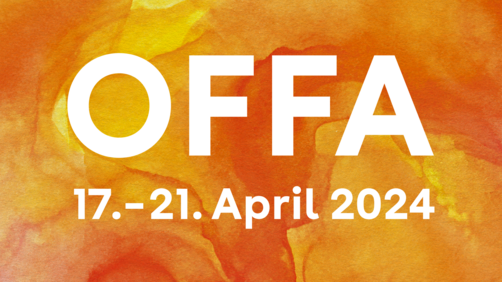Events - 03.05.2018 - 00:00
Symposium celebrates 30 years of the St.Gallen Wings of Excellence Award
Keynote speaker Steve Forbes addressed the symposium crowd by putting the pessimism and uncertainty about the future of work into perspective.

3 May 2018. The "Wings of Excellence" essay competition has been a highlight of the St. Gallen Symposium since 1989. This essay competition selects 100 students each year to participate in the Symposium.
The competition reaches out globally to roughly 1,000 graduate and postgraduate students from 350 universities in 80 countries. Of the 100 award winners, three awardees will share in the 30,000 CHF prize money.
This year the five finalists were invited on stage to pitch their essay topics to a panel of expert judges. The finalists, who hail from Germany, Brazil, France and Australia, introduced topics ranging from universal guaranteed income to changes in education, focusing on making young students technologically literate.
Third place was awarded to João Abreu, second to Janis Goldschmidt and first prize was awarded to Nathanial Ware.
Putting things in perspective
Steve Forbes addressed the symposium crowd by putting the pessimism and uncertainty about the future of work into perspective. Forbes is the chairman and editor-in-chief of Forbes magazine, was a Republican candidate in the 1996 and 2000 presidential primaries and is the author of How Capitalism Will Save Us. (2009)
Forbes jumped into the topic beyond the end of work. He believes that “you are less and less going to have to take a job because you have to, but because it fits your particular talents.” He noted that when you have great change combined with economic stagnation, like we have for the past decade, people are going to have a lot of uncertainty and pessimism about the future.
He lightheartedly stated that since the beginning of time, we have had robots; we just didn’t call them that. “Think about the wheel, look up what a washer board is on the internet.” Labour-saving devices have always been around to make our lives easier. In the end, no one can predict the future.
Innovation
Although the 1970s were not a strong time economically, many of today’s economic drivers were incubated during that time. FedEx, Apple, Oracle, Microsoft, etc… and now Google, Netflix and Facebook are playing their part. Forbes noted that Walmart was so innovative that they were able to rise to become a market leader. Sam Walton, the company’s founder, realised that you don’t have to always invent something new; you can just simply make it better.
Countries can change
Forbes pointed out that innovation can happen at a personal level and on a national level. He first noted that France has in recently years underperformed economically, but recently has turned that around. “They are at the beginning of a renaissance. They are a tax-cutting, job-creating, entrepreneurial hotbed.” In Paris, for example, there is something called Station F. It is now the world’s largest incubator for start-ups. Over 3,000 entrepreneurs are hard at work with many of the world’s largest start-ups supporting their development. Who would have thought this could happen in France?
Stability and value
Forbes argued that cryptocurrencies are not and should not be considered as currency… not because of the technology behind them, but rather because they are unstable and cannot be relied on. “With Bitcoin, one day you can buy a steak and the next day dog food. You would never do a long-term contract in Bitcoin, because of that.” Until cryptocurrencies figure out how to stabilize the value, and he is confident that they will figure that out, they will remain speculative vehicles.
More articles from the same category
Discover our special topics











